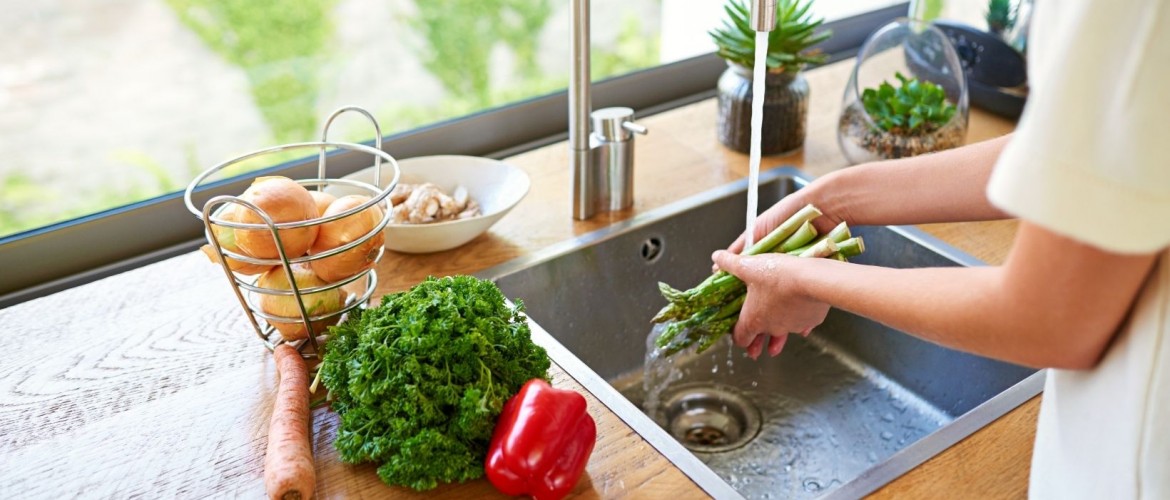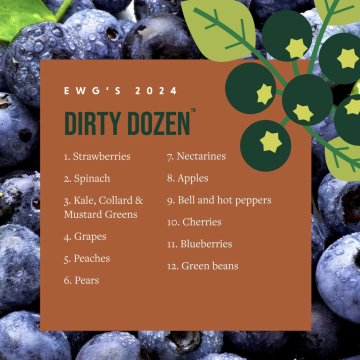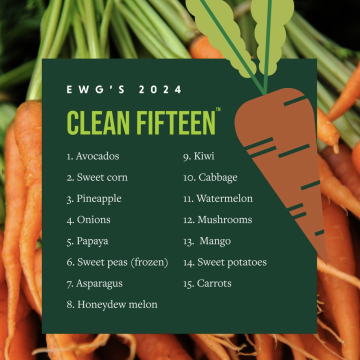We are all at risk of exposure to pesticides in our food and water. However, sensible food practices can reduce our exposure to potentially harmful containments.
What are Pesticides?
Pesticides are chemicals that are used by the farming industry for pest control. Use of pesticides can ensure a wide selection of vegetables, fruits and grains are available throughout the year. However, by the time produce and food products make it to the grocery store, trace amounts of pesticides remain in or on some fruits, vegetables, grains and other foods.
Impact on human health & who is at risk:
Understandably, people may have concerns about pesticides and the food they eat. Pesticides can have negative impact on human health, including cancer, effects on reproduction, immune or nervous systems, asthma, bronchitis, non-Hodgkin's lymphoma, Parkinson's disease, and prostate and lung cancers. Although the population most at risk to pesticides are those in direct exposure, such as a agricultural workers, we are all at risk of pesticide residues in our food and water.
Reduce your exposure:
Eat a variety of foods, from a variety of sources:
The toxicity of a pesticide depends on its function and other factors. Different crops will have different pesticides. Eating a variety of foods from a variety of sources will give you a better mix of nutrients and reduce your likelihood of exposure to a single pesticide.
Wash ALL of your produce:
Wash and scrub all fresh fruits and vegetables thoroughly under running water. Running water has an abrasive effect that soaking does not have. Although not all pesticide residues can be removed by washing, it can reduce some trace residues and bacteria from the surface of produce and remove excess dirt in crevices of produce.
The Food and Drug Administration (FDA) advises against using commercial produce washes because the safety of their residues has not been evaluated and their effectiveness has not been tested or standardized. Instead, they advice washing produce in cold tap water. Dry produce with a clean cloth towel when possible.
Learn more about washing your produce in this guide!
Trim and Peel Foods:
Trim fat from meat and skin from poultry and fish because some pesticides residues collect in fat. Peel fruits and vegetables when possible to reduce dirt, bacteria and some pesticides. Discard the outer layer of leafy vegetables, such as lettuce or cabbage.
Cooking:
Cooking helps reduce some of the pesticide residues in food that are not removable by washing or peeling.
Buy Organic:
When accessible, consider buying food that has been grown using "Certified Organic" methods. Organic farmers do not use synthetic fertilizers or pesticides and do not use antibiotics with animals. While buying organic food doesn't eliminate your risk of exposure to toxins, organic food tends to have very low or no pesticide residues.
However, "Certified Organic" produce is not always available and accessible to all of us. Utilizing EWG's (Environmental Working Group) shopping guides can help you reduce your exposure to potentially harmful pesticides on non-organic produce. Analyzing the most recent USDA data, EWG generates an annual Dirty Dozen™ and Clean Fifteen™ report, showing which non-organic produce has the highest traces of pesticides and which has the lowest:
Grow your Own Food:
Growing your own garden, or participating in a community garden, can become a rewarding way to nourish your body and puts you in control of which pesticides, if any, are used in the food you grow. You can utilize Integrated Pest Management (IPM) options that allow you to control garden pests with the least possible hazard.
Talk to your Local Farmers:
Get to know your local farmers at farmers markets and farm stands, and speak directly them about their pesticide use practices before buying their food.
Links:
NPIC: Minimizing Pesticide Residues in Food
EPA: Pesticides and Food: Healthy, Sensible Food Practices
WHO: Pesticide residues in food
CR: Produce Without Pesticides



